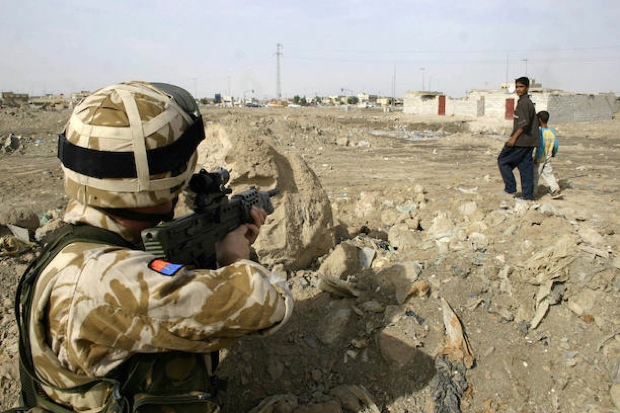The Iraq Inquiry dismisses claims that the aftermath of the invasion could not have been foreseen. It describes the planning and preparations for the country after the fall of Saddam Hussein were ‘wholly inadequate’. In his statement, Sir John said that ‘despite explicit warnings, the consequences of the invasion were underestimated’.
The report details both an awareness of the inadequacy of plans and a marked lack of effort from Whitehall. It says:
‘The scale of the UK effort in post-conflict Iraq never matched the scale of the challenge. Whitehall departments an their ministers failed to put collective weight behind the task.’
The government ‘failed to take account of the magnitude of the task of stabilising, administering and reconstructing Iraq’, while Tony Blair failed to ensure that there was ministerial oversight of the plans developed by the US, and did not work on a way of integrating the UK military and civilian contributions to the war. The report says that the two countries’ strategies for Iraq ‘began to diverge almost immediately after the conflict’.
When it came to the UK’s responsibility for the four provinces in the South East of the country, no-one ensured that military and civilian forces were actually capable of doing what they were supposed to in these provinces, particularly when it came to security. This lack of planning meant that ‘the results were meagre’. The government was unprepared for the role which it was required to deliver in the country from April 2003 onwards. Blair wrote to President Bush on 2 June 2003, saying:
‘The task is absolutely awesome and I’m not at all sure we’re geared for it. This is worse than re-building a country from scratch.
‘We start from a really backward position. In time, it can be sorted. But time counts against us…
‘Mr sense is: we’re going to get there but not quickly enough. And if it falls apart, everything falls apart in the region.’
There were ‘clear opportunities’ for the UK to reconsider its approach in the provinces it was responsible for, but these were missed. Then, the report says, senior members of the Armed Forces concluded that ‘little more would be achieved in MND(SE) and that it would make more sense to concentrate military effort on Afghanistan where it might have greater effect’. This meant that the UK couldn’t boost its forces in Iraq when it needed to.
Despite nerves about the insecurity in Basra, from May 2003, it was clear that there would be a rapid drawdown of UK forces by the autumn. The report says that at the start of 2004, there was ‘mounting evidence of violent insurgency’ but that ‘the UK’s policy of military drawdown in Iraq continued’. It criticises an ‘optimism bias’ in the UK’s engagement in Iraq, with a tendency to ‘judge that negative events were isolated incidents rather than potential evidence of a trend which should be monitored and which might require a policy response’. Des Browne, who was Defence Secretary at the time ‘repeatedly downplayed the negative aspects o the situation in Iraq and failed to ensure the dissemination of a full and unvarnished version of the truth on the ground in iraq’. He gave an ‘unbalanced account of the situation in Basra to the Prime Minister, Cabinet or Parliament’ on four separate occasions.
This means that the Inquiry believes that the state of Iraq in 2009 ‘fell far short of strategic success’.







Comments